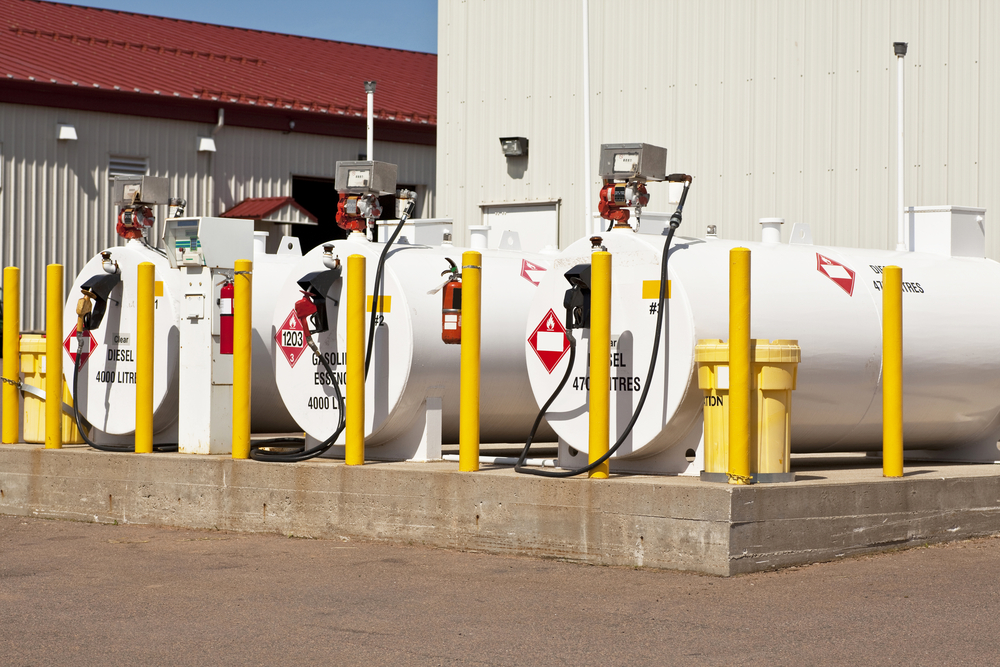
- admin
- December 23, 2019
Fuel Tank Grounding Requirements: An In-depth Analysis
For fulfilling industrial and commercial storage requirements, storage tanks are indispensable. When it comes to storing inflammable liquids and petroleum products in bulk quantities, safety always comes first.
Fuel industrial storage tanks are generally installed outside where it is exposed to adverse weather and atmospheric conditions.
When lightning strikes or when there is accidental contact with a high voltage line there is an accumulation of static or electrical energy within the tank. This results in a fire or disastrous accident.
In such a case, grounding can be the best answer to the problem. It can minimize damage or occurrence of accidents.
Grounding is beneficial when the tanks are placed in both hazardous as well as non-hazardous areas.
Grounding drains away the static charges to prevent incidents of fire at the sites where tanks are placed.
The whole process is aided by the increased humidity of the conductive plates.
Building up of a possible spark within the tanks can be averted with a resistance of up to 1,000, 000 ohms. Conductivity is increased by a film of moisture present.
If the humidity level ranges between 60% to 70% then it will avert the building up of static electricity
Ground anodes are the best option for industrial storage tanks. These anodes are linked to tank shell and positioned correspondingly close to the tank.
Is grounding necessary for all aboveground storage tanks?
Most of the time, grounding is not mandatory for aboveground storage tanks. It is because they have self-protecting properties that reduce extra grounding requirements.
When the lowest part of the tanks is made of metal and is connected to the earth directly, then the tank does not accumulate static electricity because of good conductivity.
Do diesel tanks require grounding?
Yes, because an explosion can occur anytime when you are fueling your equipment or vehicle. An effectively grounding vessel system has an electrically conductive connection to facilitate the dissipation of electrical and static charge. For effective grounding, you will need rubber tires.
Difference between Grounding, Bonding, and Earthing
Although all of them meet safety requirements, there is a hell of a difference between grounding, bonding and earthing. Many people tend to get confused between them. Let’s find the subtle differences between the three.
Grounding
Grounding refers to fusing the parts that carry electricity to the earth.
Bonding
Bonding is a term used to refer connecting two electrical conductors by attaching the metal parts that don’t carry electricity. It can be pipe and wire as well as two wires.
Earthing
Earthing is the process of linking dead or neutral parts to the earth.
For safety reasons, grounding in aboveground storage tanks should be a top priority. Industries must understand the need for grounding so that they can prevent severe accidents on the sites.
Are you looking to install tanks that are perfectly grounded at your engineering site? Visit GSC Tanks, a leading manufacturer, and supplier of aboveground tanks and underground tanks made of premium steel, polyethylene, and fiberglass.
- fuel tank
- fuel tank grounding requirements
- Industrial tanks
Category
- Above Ground Fuel Tanks
- Above Ground Gas Storage Tank
- Above Ground Storage Tanks
- Above Ground Water Storage Tanks
- Agricultural Tanks
- Chemical storage Tanks
- Diesel Fuel Storage Tanks
- Diesel Storage Tanks
- Exernal FloatingRoof Tanks
- Farm Water Tank
- Fiberglass Oil Tanks
- Fiberglass Septic Tanks
- Fiberglass Underground Fuel Storage Tanks
- Field Erected Tanks
- Floating Roof Tank
- Fuel tank
- Industrial Chemical Storage Tanks
- Industrial Gas Tanks
- Industrial Plastic Tanks
- Industrial Storage Tanks
- Industrial Tank heating pads
- industrial tanks
- Natural gas
- Natural gas vs Propane
- oil storage tank
- Oil Storage Tanks
- Peracitic Acid
- Petroleum Tanks
- Residential gasoline storage tanks
- Residential Water Storage Tanks
- Sodium Hydroxide Storage Requirements
- Sodium Hypochlorite Storage Tanks
- Steel Storage Tanks
- storage tank failure prevention
- Storage Tanks
- Sulfuric Acid Tanks
- Uncategorized
- UnderGround Storage Tanks
- Waste water tank
- Water Storage Tanks

 Tank Size Calculator
Tank Size Calculator






